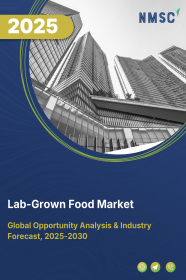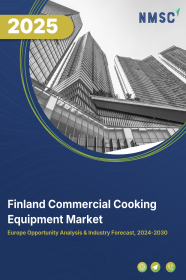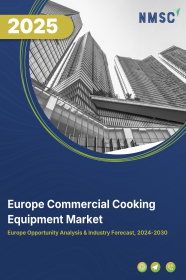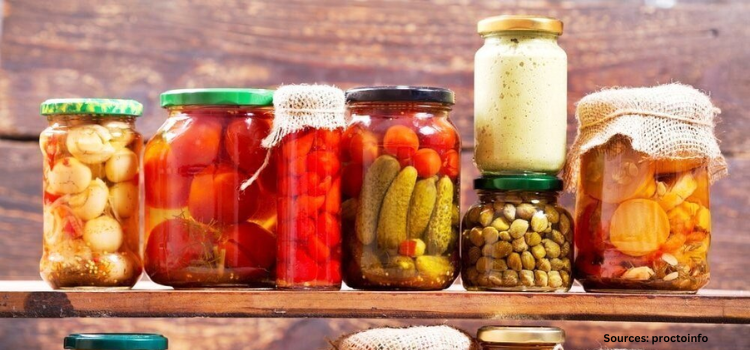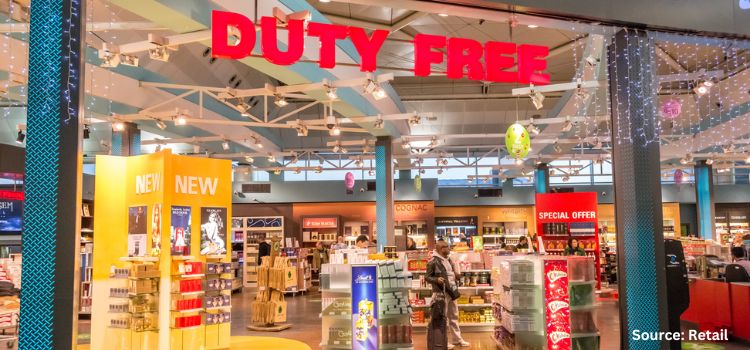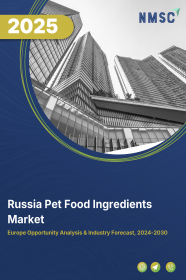
Russia Pet Food Ingredients Market by Type (Non-Vegan, Vegan, and Novel Proteins), by Nature (Organic and Inorganic), by Form (Dry and Wet), by Pet Type (Dog, Cat, and Others), and by Distribution Channel (Online and Offline) – Opportunity Analysis and Industry Forecast, 2024–2030
Industry: Retail and Consumer | Publish Date: 11-Feb-2025 | No of Pages: 117 | No. of Tables: 85 | No. of Figures: 50 | Format: PDF | Report Code : RC2836
US Tariff Impact on Russia Pet Food Ingredients Market
Trump Tariffs Are Reshaping Global Business
Russia Pet Food Ingredients Market Overview
The Russia Pet Food Ingredients Market size was valued at USD 457.2 million in 2023, and is predicted to reach USD 736.5 million by 2030, at a CAGR of 6.6% from 2024 to 2030. In terms of volume the market size was 67.66 kilotons in 2023 and is projected to reach 87.92 kilotons in 2030, with a CAGR of 3.4% from 2024 to 2030.
The pet food ingredients industry refers to the production and distribution of essential raw materials required for making pet food. The ingredients sourced from both plant and animal origins deliver essential nutrients including proteins, carbohydrates, fats, vitamins, and minerals to meet the dietary needs of different animal species.
Through various processes such as grinding and blending, these raw materials are refined to improve both flavour and nutritional value. These ingredients support pet health and development, providing important dietary options to meet specific and high-quality components needs. The companies in this industry prioritize sourcing premium ingredients and ensuring supply chain transparency. This strategic commitment supports market expansion as pet owners increasingly look for quality food choices for their pets.
Rising Pet Population Drives the Russia Pet Food Ingredients Market
The rapid growth of Russia’s pet population propels the pet food ingredients market, as more pet-owning households drive demand for specialized, nutritious pet food products. This increasing need pushes manufacturers to seek a broader array of ingredients modified to specific dietary requirements, including health-conscious and sustainable options.
As per the latest report published by the European Pet Food Industry Federation, Russia’s pet cat population reached around 23,150,000 in 2022. This surge in pet ownership requires manufacturers to expand product lines and invest in diverse ingredient sourcing, strengthening and diversifying the pet food ingredients market.
Growing Awareness of Sustainable Pet Food Ingredients Boosts the Growth of the Market
The growing awareness of sustainable pet food ingredients propels the expansion of the market in Russia as consumers become more conscious of the environmental impact of their purchases. This leads to rising demand for pet food products made with sustainable and ethically sourced ingredients and shift towards eco-friendly and organic pet food that in turn drives manufacturers to innovate and adopt sustainable practices.
As a result, the market increasingly offers products that align with eco-conscious values, addressing to pet owners seeking environmentally responsible options for their pets.
Current War Situation Restraints Russia’s Pet Food Ingredients Market Growth
The ongoing conflict in Russia poses significant challenges for the pet food ingredients market, as supply chain disruptions impact the availability of key ingredients and raw materials. The economic instability and heightened geopolitical tensions drive up production costs and limit consumer spending, creating a challenging environment for manufacturers.
These factors make it difficult for producers to maintain stable product quality and availability that ultimately hampers the market's potential for growth.
Adoption of Sustainable Protein Sources Creates Growth Opportunity for the Market
Incorporating sustainable protein sources such as egg proteins, tofu byproducts, black soldier flies, and silkworms is anticipated to create new opportunities for the pet food ingredient market. As compared to traditional proteins such as beef and pork, these options are nutrient-dense and come with a reduced environmental impact.
Both egg proteins and tofu derivatives provide vital nutrients while contributing to food waste reduction. Additionally, insect proteins sourced from black soldier flies and silkworms offer a sustainable, eco-conscious approach to protein production. These options not only fulfill pets’ nutritional requirements but also support the adoption of organic practices, steering the industry toward responsible production and long-term sustainability.
Competitive Landscape
The several market players operating in the Russia pet food ingredients market include Cargill Incorporated, Kemin Industries Inc., Archer Daniels Midland Company (ADM), Koninklijke DSM N.V., Partner-M, Symrise AG, Darling Ingredients Inc., The Scoular Company, UTS Group, Eco Resource, and others.
Russia Pet Food Ingredients Market Key Segments
By Type
-
Non-Vegan
-
Beef
-
Chicken
-
Fish
-
Others
-
-
Vegan
-
Soyabeans
-
Peas
-
Lentils
-
Others
-
-
Novel Proteins
By Nature
-
Organic
-
Inorganic
By Form
-
Dry
-
Wet
By Pet Type
-
Dog
-
Cat
-
Others
By Distribution Channel
-
Online
-
Offline
Key Players
-
Cargill Incorporated
-
Kemin Industries Inc.
-
Archer Daniels Midland Company (ADM)
-
Koninklijke DSM N.V.
-
Partner-M
-
Symrise AG
-
Darling Ingredients Inc.
-
The Scoular Company
-
UTS Group
-
Eco Resource
REPORT SCOPE AND SEGMENTATION:
|
Parameters |
Details |
|
Market Size in 2023 |
USD 457.2 Million |
|
Revenue Forecast in 2030 |
USD 736.5 Million |
|
Growth Rate |
CAGR of 6.6% from 2024 to 2030 |
|
Market Volume in 2023 |
67.66 Kilotons |
|
Volume Forecast in 2030 |
87.92 Kilotons |
|
Growth Rate (Volume) |
CAGR of 3.4% from 2024 to 2030 |
|
Analysis Period |
2023–2030 |
|
Base Year Considered |
2024 |
|
Forecast Period |
2024–2030 |
|
Market Size Estimation |
Million (USD) |
|
Growth Factors |
|
|
Companies Profiled |
10 |
|
Market Share |
Available for 10 companies |
|
Customization Scope |
Free customization (equivalent up to 80 working hours of analysts) after purchase. Addition or alteration to country, regional, and segment scope. |
|
Pricing and Purchase Options |
Avail customized purchase options to meet your exact research needs. |

















 Speak to Our Analyst
Speak to Our Analyst



